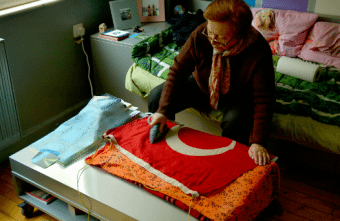Criminals acquired over 500 DigiNotar digital certificates; Mozilla and Google issue ‘death sentence’
By Gregg Keizer
 Computerworld – The tally of digital certificates stolen from a Dutch company in July has exploded to more than 500, including ones for intelligence services like the CIA, the U.K.’s MI6 and Israel’s Mossad, a Mozilla developer said Sunday.
Computerworld – The tally of digital certificates stolen from a Dutch company in July has exploded to more than 500, including ones for intelligence services like the CIA, the U.K.’s MI6 and Israel’s Mossad, a Mozilla developer said Sunday.
The confirmed count of fraudulently-issued SSL (secure socket layer) certificates now stands at 531, said Gervase Markham, a Mozilla developer who is part of the team that has been working to modify Firefox to blocks all sites signed with the purloined certificates.
Among the affected domains, said Markham, are those for the CIA, MI6, Mossad, Microsoft, Yahoo, Skype, Facebook, Twitter and Microsoft’s Windows Update service.
“Now that someone (presumably from Iran) has obtained a legit HTTPS cert for CIA.gov, I wonder if the US gov will pay attention to this mess,” Christopher Soghoian, a Washington D.C.-based researcher noted for his work on online privacy, said in a tweet Saturday.
Soghoian was referring to assumptions by many experts that Iranian hackers, perhaps supported by that country’s government, were behind the attack. Google has pointed fingers at Iran, saying that attacks using an ill-gotten certificate for google.com had targeted Iranian users.
All the certificates were issued by DigiNotar, a Dutch issuing firm that last week admitted its network had been hacked in July.
The company claimed that it had revoked all the fraudulent certificates, but then realized it had overlooked one that could be used to impersonate any Google service, including Gmail. DigiNotar went public only after users reported their findings to Google.
Criminals or governments could use the stolen certificates to conduct “man-in-the-middle” attacks, tricking users into thinking they were at a legitimate site when in fact their communications were being secretly intercepted.
Google and Mozilla said this weekend that they would permanently block all the digital certificates issued by DigiNotar, including those used by the Dutch government.
Their decisions come less than a week after Google, Mozilla and Microsoft all revoked more than 200 SSL (secure socket layer) certificates for use in their browsers, but left untouched hundreds more, many of which were used by the Dutch government to secure its websites.
“Based on the findings and decision of the Dutch government, as well as conversations with other browser makers, we have decided to reject all of the Certificate Authorities operated by DigiNotar,” Heather Adkins, an information security manager for Google, said in a Saturday blog post.
Johnathan Nightingale, director of Firefox engineering, echoed that late on Friday.
“All DigiNotar certificates will be untrusted by Mozilla products,” said Nightingale, who also said that the Dutch government had reversed its position of last week — when it had asked browser makers to exempt its DigiNotar certificates.
“The Dutch government has since audited DigiNotar’s performance and rescinded this assessment,” Nightingale said. “This is not a temporary suspension, it is a complete removal from our trusted root program.”
On Saturday, Piet Hein Donner, the Netherlands’s Minister of the Interior, said the government could not guarantee the security of its websites because of the DigiNotar hack, and told citizens not to log into its sites until new certificates had been obtained from other sources.
The DigiNotar breach is being audited by Fox-IT, which told the Dutch government that it was likely certificates for its sites had been fraudulently acquired by hackers.
Several security researchers said the move by browser makers puts an end to DigiNotar’s certificate business.
“Effectively a death sentence for DigiNotar,” said Jeremiah Grossman, CTO of WhiteHat Security, in a Friday tweet.
Mozilla was scathing in its criticism of DigiNotar.
Nightingale ticked off the missteps that led Mozilla to permanently block all sites signed with the company’s certificates, including DigiNotar’s failure to notify browser vendors in July and its inability to tell how many certificates had been illegally obtained. “[And] the attack is not theoretical,” Nightingale added. “We have received multiple reports of these certificates being used in the wild.”
Markham went into greater detail on the hack and its ramifications. “It has now emerged that DigiNotar had not noticed the full extent of the compromise,” said Markham in a Saturday post to his personal blog. “The attackers had managed to hide the traces of the misissuance — perhaps by corrupting log files.”
Because the Google certificate that prompted DigiNotar to acknowledge the intrusion was obtained before most of the others, Markham speculated that there had actually been two separate attacks, perhaps by different groups.
“It is at least possible (but entirely speculative) that an initial competent attacker has had access to [DigiNotar’s] systems for an unknown amount of time, and a second attacker gained access more recently and their less-subtle, bull-in-a-china shop approach in issuing the [hundreds of] certificates triggered the alarms,” he said.
Last week, Helsinki-based antivirus company F-Secure said it had found signs that DigiNotar’s network had been compromised as early as May 2009.
Mozilla will update Firefox 6 and Firefox 3.6 on Tuesday to permanently block all DigiNotar-issued certificates, including those used by the Dutch government.
On Saturday Google updated Chrome to do the same.
Gregg Keizer covers Microsoft, security issues, Apple, Web browsers and general technology breaking news for Computerworld. Follow Gregg on Twitter at @gkeizer, on Google+ or subscribe to Gregg’s RSS feed . His e-mail address is [email protected].
www.computerworld.com, 4 September 2011






